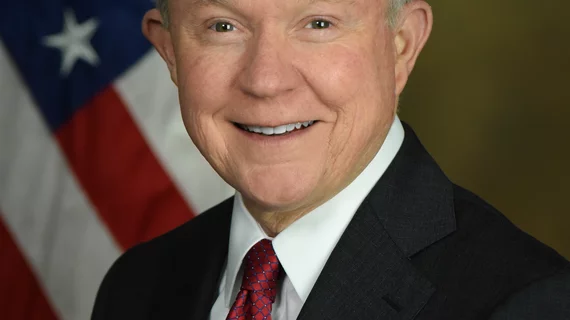DOJ argues parts of ACA unconstitutional after mandate eliminated
The Department of Justice under Attorney General Jeff Sessions and President Donald Trump will not defend the Affordable Care Act (ACA) in a lawsuit brought by 20 Republican states, largely agreeing with the states’ position that the ACA will violate the U.S. Constitution once the individual mandate penalty has been eliminated.
The mandate penalty will zeroed out beginning in 2019 by the Republican-backed tax cut law, but technically still exists. The 2012 U.S. Supreme Court ruling in National Federation of Independent Business v. Sebelius said the penalty could be allowed because it acted like a tax, but rejected the argument that it fell under Congress’s power to regulate interstate commerce. Now that there’s no penalty, 20 state attorneys general argued what remains is a unconstitutional requirement.
In a letter to House and Senate leaders, Sessions backed much of the states’ position and “will argue that certain provisions of the (ACA) are inseverable from that provision.”
Sessions doesn’t go as far as arguing the entire law would be invalid, but the provisions he deemed “inseverable” from the mandate include some of the ACA’s key protections, like not allowing insurers to charge more or deny coverage based on a consumer’s pre-existing conditions.
The decision by the DOJ to not defend an existing law is a break with tradition, but Sessions argued it’s not unprecedented. In one sign other officials disagree with that position, three DOJ attorneys who aren’t political appointees—JoelMcElvain, Eric Beckenhauer and Rebecca Kopplin—withdrew from the case just before Sessions filed the brief on May 7.
Defending the ACA now falls to 17 attorneys general from Democratic-led states. To invalidate the ACA, the Republican states would have to successfully argue that a penalty of $0 is harming consumers as well as explain why Congress left the pre-existing condition protections in the law alone while zeroing out the mandate.
Nicholas Bagley, a law professor at the University of Michigan and a former DOJ lawyer, wrote in his Incidental Economist blog that he’s “at a loss for words to explain how big of a deal this is.”
“The laws that Congress passes and the Presidents signs are the laws of the land. They aren’t negotiable; they’re not up for further debate,” he wrote. “If the Justice Department can just throw in the towel whenever a law is challenged in court, it can effectively pick and choose which laws should remain on the books. That’s as flagrant a violation of the President’s constitutional duty to take care that the laws are faithfully executed as you can imagine.”
Bagley said it’s “extremely unlikely” that the Supreme Court would adopt the Republican states’ argument in this case. His bigger concern is the administration’s “rule by whim” in refusing to defend a law it has advocated repealing.

